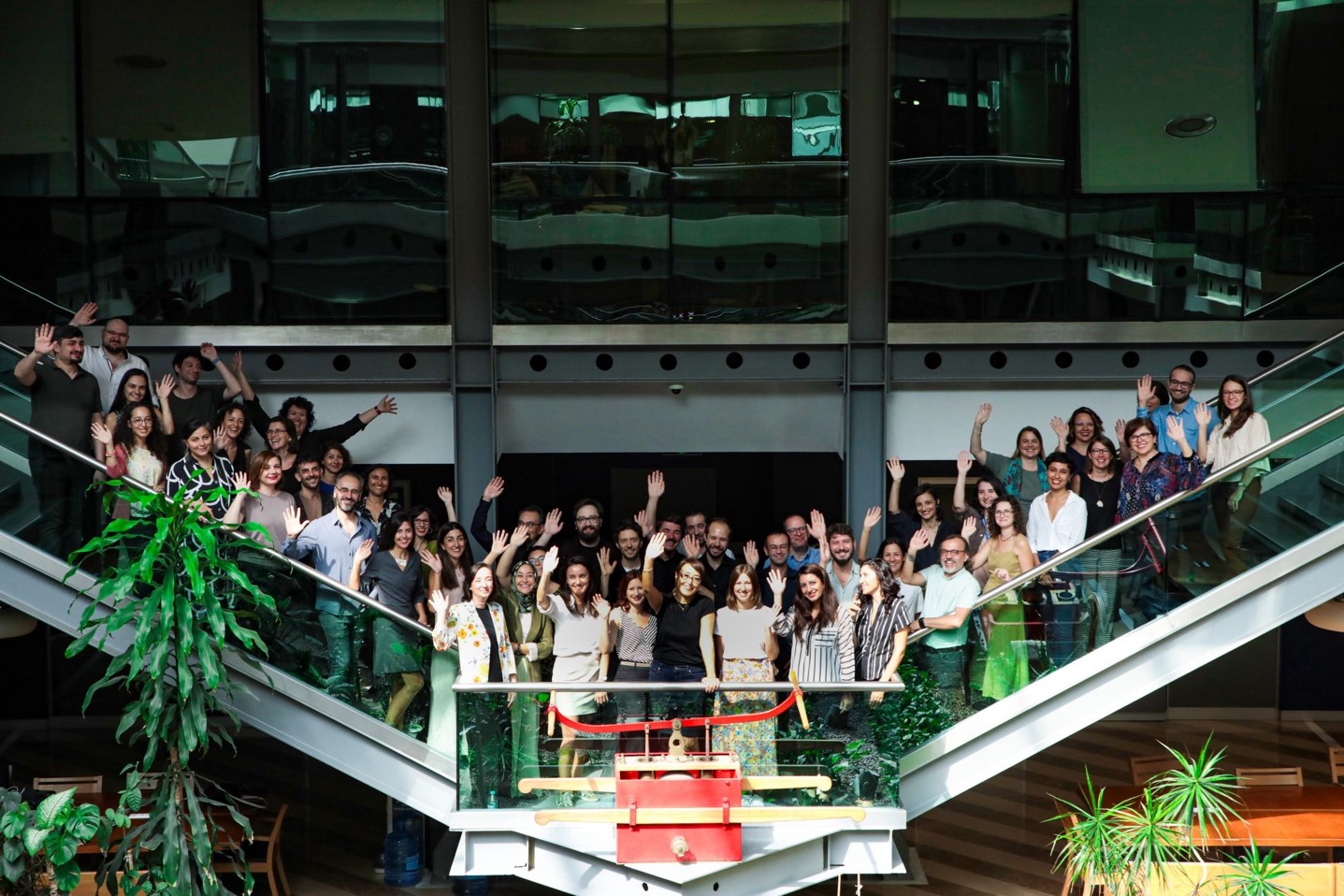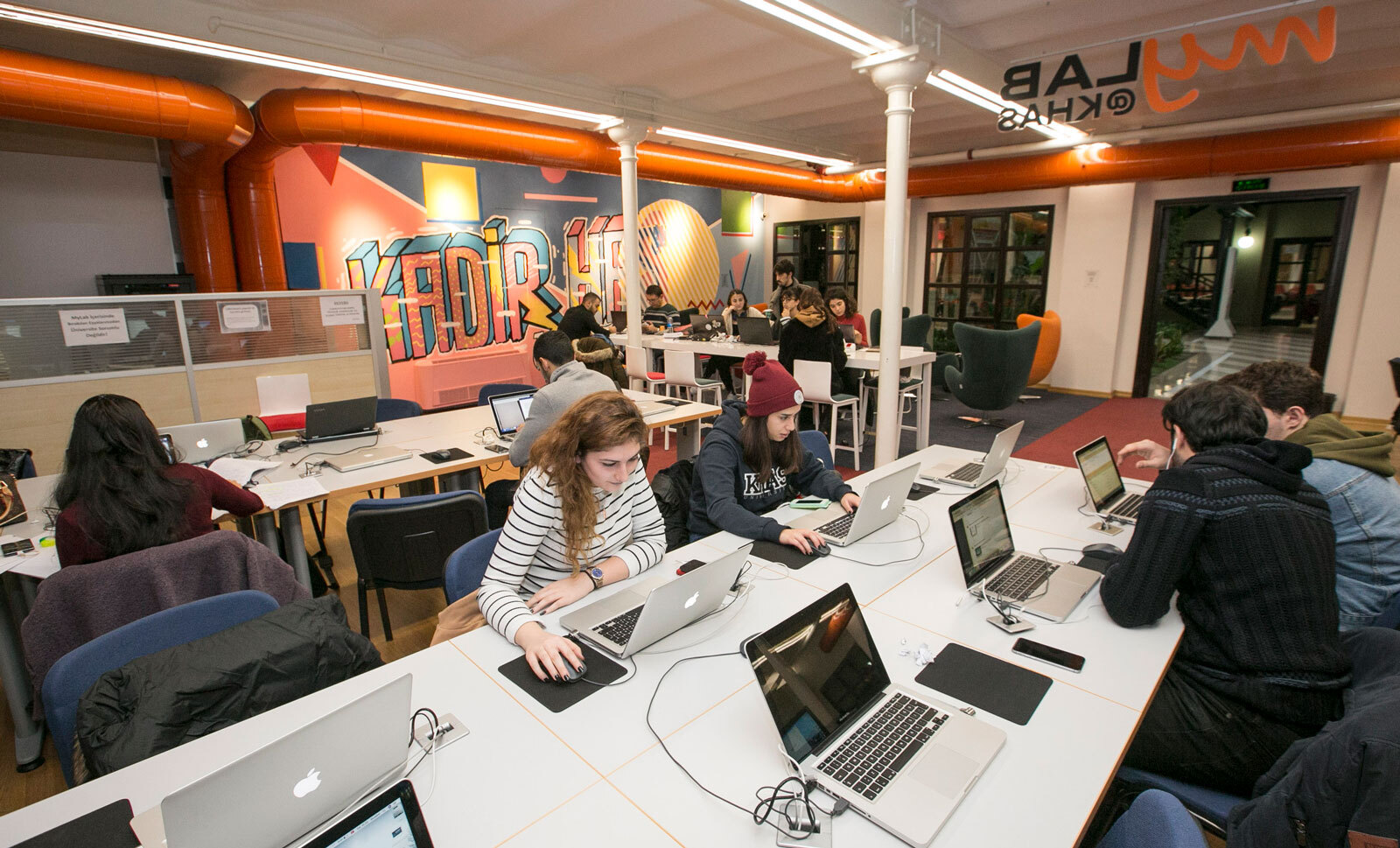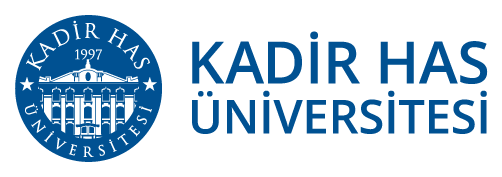COURSES RELATED TO SUSTAINABILITY AND SUSTAINABLE DEVELOPMENT GOALS

Core Program
Kadir Has University Core Program aims to provide students with a universal vision regarding sustainability and SDGs. Some of these courses can be seen below:
Compulsory Courses
HST 101 and HST 102 History of Modern Turkey
KHAS 103 History of Humankind
KHAS 105 Universal Values and Ethics
KHAS 110 Civic Responsibility Project Course
TLL 101 & TLL 102 Critical Reading and Writing in Turkish
Elective Courses
Social responsibility projects initiated by Kadir Has University faculties and departments, student clubs, students and graduates form another indispensable source of outreach activities. As part of the KHAS New Education Model, students of Core Program take civic responsibility courses (KHAS 110 Civic Responsibility Project & KHAS 120 Civic Responsibility Project for International Students). In these courses, core program students design and implement social responsibility projects to reach out to various communities and publics with the aim of positive social change.
NGOs with which protocols were signed and project contents:
All Children Are Ours Association (2022-2023 academic years)
Within the scope of the cooperation developed with the association, the students carried out activities for Fatih Kırımlı Aslanbey Primary School 1st-4th grade students in Fener. Working groups were formed and paired with a primary school branch and the students met with children from the branch they were paired with in their fortnightly field studies. In some weeks, in-class activities were organised in the primary school (Dodo Reads Books, Dodo Tells Tales, origami, playground painting, free play hours in the school garden), while in other weeks, students from the primary school came to the university accompanied by their teachers and participated in the activities organised by the students taking the course at the university (film screenings in the school cinema hall, a visit to the Rezan Has Museum, origami exhibition). In addition, books for children were collected from the "book tree" established at the university and donated to the primary school. Before the fieldwork started, an expert psychologist from the association gave online trainings to the students on communicating with children, effective reading techniques, and body language.
The students contributed to the Beyoğlu Strategy Plan prepared by the Istanbul Metropolitan Municipality Urban Planning Directorate through participatory methods. IBB team stated that they needed youth participation in the study and directed the students to work with young people living in Beyoğlu. It was planned to carry out field studies to determine how young people living in the neighbourhoods of Beyoğlu use Beyoğlu, what their expectations, needs and demands are. Each of the 6 neighbourhoods of Beyoğlu was matched with a student group (Sütlüce-Örnektepe, Okmeydanı-Hasköy, Dolapdere-Tarlabaşı, Kasımpaşa, İstiklal Caddesi-Galata-Karaköy, Tophane-Kabataş-Cihangir). In the first phase of the study, students carried out data collection activities (determining the nursery-schools, primary schools, secondary schools, high schools, universities, research institutes, public urban service areas, private/legal urban service areas in Beyoğlu region and their characteristics). In the second phase of fieldwork, students met with young people aged 14-20 living in Beyoğlu in civil society organisations and conducted in-depth interviews (Sururi Neighbourhood Solidarity, Tarlabaşı Community Centre, Okmeydanı Environmental Protection and Beautification Association, Hasköy Culture House, Örnektepe Neighbourhood House, Bereketzade Muhtarlığı, Beyoğlu Citizen Assembly). Although it was planned to organise a Beyoğlu forum at Kadir Has University within the scope of the Beyoğlu Senin project, it could not be held. The cooperation ended with the finalisation of the IBB Beyoğlu Strategic Plan.
In the Neighbourhood Houses established by IBB Social Services Directorate for community empowerment in disadvantaged neighbourhoods of Istanbul, students volunteered and organised activities for children and women. In Örnektepe, Sulukule, Zafer, Cibali Neighbourhood Houses, they carried out free time activities and workshops (lesson support workshop, Papuduk, English support, game workshop). Before the fieldwork of the students, an expert psychologist from IBB provided online trainings to the students on children's rights to bodily speech and trauma-sensitive volunteering.
Within the scope of the cooperation, students proposed and developed projects based on urban commons and participation under the mentorship of İKK and using the facilities of the council. In the first working year, 4 working groups developed projects with 4 different methods and themes: one group carried out focus group studies on Kadir Has University students' access to culture and arts, one group worked on the urban mobility of students studying in the Golden Horn region, one group carried out a face-to-face leg of the "Participation Café" events organised by İKK in different neighbourhoods of Istanbul to identify and report the demands, expectations and requests of different groups regarding the city, one group carried out a face-to-face leg at IBB Sütlüce facilities for students studying in the Golden Horn region, and one group carried out an online Participation Café event for the same group via the Discord platform. In these activities, in which all groups developed their own working themes and methods, a mentorship model was developed with IKK; in this model, a project coordinator from IKK and a political scientist with expertise in the field of participation were determined as mentors, and these mentors met with the students periodically and gave feedback to their projects. In the second year, student groups were directed to submit project proposals for the "Participatory Budget", a joint project of the Istanbul City Council and IBB. Citizens residing in Istanbul apply to the Participatory Budget, which aims to plan the IBB budget with a participatory approach, by proposing projects on certain themes; projects that pass a preliminary screening on the applicability of the projects are submitted to a public vote and the selected projects are implemented with the IBB budget. After the 6 February earthquakes, the theme of the Participatory Budget was determined as "disaster resilience" and the students developed their own project proposals with feedbacks under the mentorship of IKK and made their applications at the end of the term. 6 working groups developed different projects on the theme of disaster, such as developing an Istanbul animal disaster action plan, rights-based awareness raising activities on disasters in the neighbourhood.
The Istanbul City Council's Participation Café project, of which Khas students also carried out two legs in 2023, became the 2023 finalist in the OIDP (International Observatory on Participatory Democracy) best practice award in citizen participation.
Within the scope of the cooperation with Tider, which has the largest food bank network in Turkey, students carried out volunteer work in Beyoğlu Municipality Food Bank and Şişli Municipality Food Bank as they are close to the university. In these food banks, products that are close to their expiry date but are still healthy to consume, products that are not sold in the market due to reasons such as packaging printing errors, etc., or donated products are delivered free of charge and with a credit system to those in need determined by the social service directorates of local municipalities. The market system enables those in need to obtain the products they want in the quantities they want and to feel better about themselves. In these food banks, student groups carried out field work every two weeks, assisting and guiding those who came, sorting and placing products in the market, and placing the parcels. Some student groups contributed to the distribution of iftar meals at the Embrace Life Association Restaurant and Atlas Aid Association Restaurant. In addition, some student groups coordinated the donation of products (books, food, toys) to Tider in the donation piggy banks within the university.
In this digital volunteering project planned for international students, students provided online English support workshops to disadvantaged children and youth in different provinces of Turkey. Before the work, TEGV team provided training on online communication techniques and volunteering for the students. Due to the difficulties of implementing TEGV's volunteering procedure in the duration and scope of a one-semester course, the project was not continued in 2022-2023.
In collaboration with the WMTR community of volunteer Wikipedists on digital volunteering and open source knowledge production, students created content for Wikipedia, "the free encyclopaedia to which everyone can contribute", and its sister projects (Wikimedia Commons, Wiktionary, Wikisource, Wikidata). At the beginning of the semester, the WMTR team provided online training on the principles of Wikipedia, how it is used, and digital literacy. Students worked in groups throughout the semester on different topics such as endemic plants of Turkey, Istanbul biennials, independent film festivals in Turkey, nature reserves in Turkey, women writers and artists, and developed Wikipedia articles on these topics.
Within the scope of the course, 510 articles were created, 1120 existing Wikipedia articles were improved, 2170 total edits were made, 89 open source images were added, 4030 references were added.
The Wikimedia Foundation's "this month in education" newsletter featured the Khas-WMTR collaboration in June 2022: https://meta.wikimedia.org/wiki/Education/Newsletter/June_2022
Khas Social Support and Solidarity Club & Khas Activism Club (2022-2023 academic years)
Within the scope of the course, two student clubs within the university, which are engaged in social benefit-oriented activities, were co-operated with. The clubs provided mentoring support to students who developed their own projects or provided students with the opportunity to develop joint projects in the existing working groups of the clubs (human rights, environment and animal rights working groups were formed). Different projects were developed and implemented, such as collecting and sending donations of books and toys to children in village schools, organising bird house workshops and placing bird houses for birds in and around the school, organising an animal rights conference at the university with NGOs and rights defenders working in the field of animal rights as speakers, forums and trainings where gender norms were discussed.
Resif34, which emerged as a project proposal of a student group developing an original project within the scope of Khas110 in the 2022-2023 academic year, turned into a student community the following year, and when they stated that they wanted to carry out joint work with the students who would take the course within the scope of Khas110, they were included in the collaborations in the course. Working on Istanbul's water pollution and raising awareness of urbanites on this issue, Resif34 formed different working groups with the students and created their working topics/plans together with the students. The social media working group scanned water-related news and produced regular content/images to be published on the community's social networks, the game group worked on the software and design of a digital game aimed at raising awareness about water pollution for children, and the activity group organised a coastal cleaning event in Yeşilköy at the end of the semester, which included concerts, talks on water pollution given by IBB and Turmepa teams, and a picnic.
Apart from NGO collaborations, students were also given the option to propose and implement their own original projects. These student groups presented their project plans and developed their projects under the mentorship of the course coordinator throughout the semester. Some examples of original projects: A weekly newsletter project where news, articles and columns on the right to water are shared within the university, reading activities on the climate crisis for students at Riyaziyeci Salih Zeki Primary School in cooperation with Günışığı Kitaplığı and the university Information Centre, collecting and recycling electronic waste at the university and donating the proceeds to the Educational Volunteers Foundation of Turkey, Organising cinema workshops with young people at Cibali Secondary School, organising a veganism and animal rights summit at the university, meeting and watching films with young people who have recovered from cancer in cooperation with Lösev, organising a two-day study-recreation camp with disadvantaged children living in Balat and Cibali, cat houses made with upcycling and placed around the university.
| 2022 - 2023 Spring Term | |
| NGO/Gorverment/Student Club | Groups |
| All Children Are Ours Association | 26 |
| Basic Needs Association | 24 |
| Wikimedia Turkey User Community Group | 44 |
| IBB City Council (Istanbul Metropolitan Municipality) | 6 |
| Neighbourhood Houses | 11 |
| Social Support and Solidarity Club | 6 |
| Activism Club | 10 |
| RESİF34 | 10 |
| Groups making their own project | 24 |
| Total | 161 |
| Grand total for 2022-23 | 286 |

Undergraduate Programs
Undergraduate programs also offer courses on sustainable development:
Course Content:
This course encompasses the historical and current economic development of different regions within the frameworks of trade, agriculture, industrial development and industrialization policies, the role of the state in development, structural change, the labor market, and women’s participation in the workforce. In addition, the course presents multiple conceptual approaches through which the differences in development outcomes can be observed. In this context, the course is organized to include both historical perspectives and modern conceptual advances in development economics.
Course Learning Outcomes (LO):
- Ability to read and understand writings on economic development
- Understanding of the data and fundamental circumstances underlying economic development
- Comprehension of the multidimensional and historical nature of development
- Ability to understand the assumptions behind models
- Ability to evaluate development writing practices
PROGRAMS ON SUSTAINABILITY AND SUSTAINABLE DEVELOPMENT GOALS
Energy and Sustainable Development Master's Program
As a vital input of the economy, energy is one of the most strategic tools for the sustainable development of countries. The contemporary energy system, which is 90 percent dependent on fossil fuels, is not sustainable due to resource scarcity, environmental problems, and global climate change. Another factor increasing the importance of energy is that in today’s world, where natural gas is used as a transition fuel on the path toward a low-carbon energy system, the geopolitical rivalry among major energy players continues to heighten. This rivalry accelerates the struggle for resources and causes global economic and political destabilization.
The Turkish energy system is also faced with crucial problems. Turkey imports about a quarter of its energy in exchange for 50-60 billion USD, and its dependence on foreign resources threatens energy security as well as the national security of the country. Turkey’s import dependency on natural gas and oil, which are the most consumed primary resources, is currently more than 90 percent. Furthermore, domestic energy production is gradually decreasing while the gap between production and consumption continues to widen. In the 21st century, the state economy cannot be sustained under such circumstances in energy.
Another important feature of Turkey’s energy system is high energy demand owing to its rapid development, which attracts the attention of the world as a rising market. In the last 50 years, the primary energy demand increased by 5 percent while the demand for electricity increased by 8 percent, and this situation is expected to continue for a long time. Therefore, the efforts to increase domestic production, especially of lignite, should be accelerated while the demand for energy should be decreased by improving energy efficiency. At the same time, standing at the crossroads of major energy producers and consumers, Turkey’s unique geopolitical location provides the country with the opportunity to become an energy bridge and, more importantly, an energy hub. Therefore, it is crucial for Turkey to become a significant energy player in the region.
Due to all these reasons, energy is one of the most attractive sectors for investments in Turkey. The inability of the public sources to provide sufficient financing for investment necessitates most of the energy investments to be made by the private sector. The monetary and fiscal performance of the Turkish economy in recent years, the improvement of the investment environment, and the introduction of new incentive programs have increased the number of long-term energy investments by the private sector. In addition to energy-oriented investments, some of the companies that invest in Turkey are global construction and contracting companies. These companies have started to give more importance to energy efficiency in their housing and plant constructions in order to increase their competitiveness. All of these companies need qualified manpower and state-of-the-art technology. Considering the fact that energy companies are generally located in Istanbul and its surrounding area, it is necessary to open new higher education programs specifically focused on energy.
Even though a number of graduate programs on energy have been opened in recent years, these programs are far from meeting the needs of the sector due to their contextual and structural features. These programs generally focus on a certain aspect of energy, neglecting its interdisciplinary nature. It is expected that the Energy and Sustainable Development Thesis/Non-Thesis Master’s Program, which was opened in the 2016-2017 academic year at Kadir Has University, will fill the gap in this area as it brings together several disciplines in social sciences, physical sciences, and engineering. It is also important to point out that the program works in coordination with the Centre for Energy and Sustainable Development and thus maintains strong ties with interdisciplinary research and practice.
The Energy and Sustainable Development Master’s Program, which is designed by taking all of these factors into consideration, ensures students to specialize in several areas of energy. Students are provided with a wide range of departmental and non-departmental elective courses in addition to the compulsory courses in four main areas, namely, energy science and engineering, energy finance and economics, management of sustainable development and policies, and energy security and geopolitics. In addition to the theoretical knowledge provided by the courses, students are trained in real-life practices through seminars given by experts on the subjects. The most important advantage of the program, offered to students with bachelor's degrees in many different branches, is the opportunity to acquire expertise in sustainable energy, which is becoming more important every day. The program is designed to be conducted completely in English to increase the competitiveness of students in the careers they will pursue either in Turkey or abroad. The program has thesis and non-thesis options for the purpose of satisfying the varying needs of the students.

